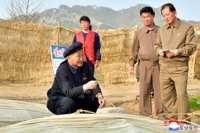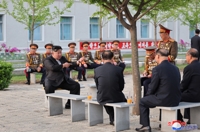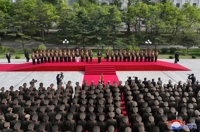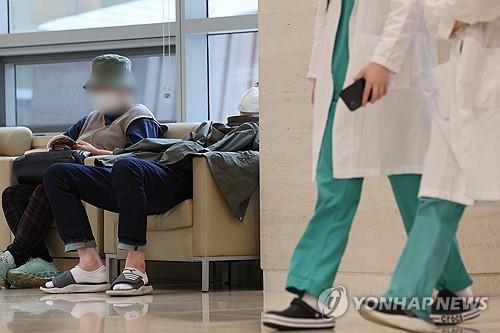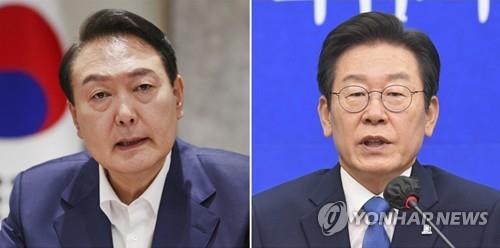(LEAD) S. Korea raises cautious hopes for exemption from U.S. steel tariffs
(ATTN: CLARIFIES Paik's comments in fourth para)
By Kim Eun-jung
SEOUL, March 19 (Yonhap) -- South Korea's commerce minister on Monday raised cautious hopes for getting an exemption from the United States over proposed tariffs on Korean steel products, as negotiators engage in last-minute lobbying to minimize the impact on the local industry.
Paik Un-gyu, minister of trade, industry and energy, said South Korea has been negotiating with U.S. officials through multiple channels to earn a reprieve from the 25-percent steel duties, which are set to go into effect on March 23.
South Korean trade minister Kim Hyun-chong has been in Washington D.C. to have closed meetings with U.S. Trade Representative Robert Lighthizer and other policymakers to get Seoul exempted from the planned duties. Yoo Myung-hee, who led the third round of talks to amend the free trade agreement with the U.S. last week, extended her stay throughout this week to assist his outreach efforts.
"We are making efforts to get country-specific exemptions (from the steel tariffs). I hope to get a good result from the negotiations within this week," Paik told reporters in Seoul. "Although the U.S. views (South Korea) as an ally, there are concerns over the global oversupply of steel and we are working hard on that part."
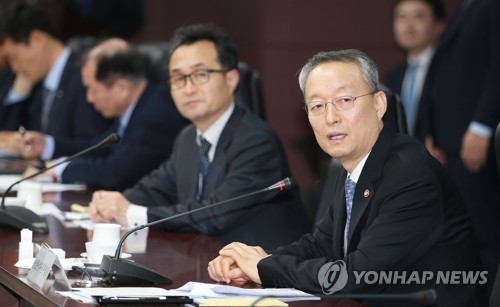
Paik Un-gyu, minister of trade, industry and energy, speaks during a working group meeting tasked with drawing up the basic energy plan in Seoul on March 19, 2018, in this photo provided by the ministry. (Yonhap)
South Korea sold 3.6 million tons of steel products to the U.S. last year, making it the No. 3 steel exporter following Canada and Brazil, according to the Department of Commerce.
Despite the military and economic alliance with the U.S., South Korea is in a more difficult situation than other nations due to its high volume of steel imports from China, which is blamed for flooding the global market with cheap products.
South Korean officials have said they will make it clear that the country has been reducing its steel production to address the global supply glut and is not serving as a backdoor for Chinese steel to reach U.S. markets.
While the negotiations for the steel tariffs and a new trade deal are underway at the same time, Paik said Seoul is engaging in those talks with "various possibilities in mind."
In regard to concerns over rising pressure on the Korean side to give more to satisfy American negotiators in the trade talks, Paik said Seoul won't make unilateral concessions to U.S. demands at the negotiating table.
In the past round of talks, the U.S. has called for enhancing market access to the Korean auto market and strengthening rules of origins.
Aside from outreach efforts for the country-specific exemptions, the Seoul government said it will work with steel exporters to help them get exclusions for their products from the list of tariffs. The U.S. Commerce Department will decide on exclusions for certain products that are not sufficiently produced in the U.S., which could last up to 90 days.
Trade tensions have spiked at a politically sensitive time when close consultations are needed between the traditional allies to arrange summits with North Korean leader Kim Jong-un to help resolve the nuclear standoff. Amid a flurry of diplomatic efforts, Trump has called on South Korean negotiators to "show flexibility" in the trade negotiations.
The U.S. is South Korea's second-largest trading partner after China, with bilateral trade reaching $119.3 billion in 2017, according to government data.
ejkim@yna.co.kr
(END)
-
 'Queen of Tears' weaves rich tapestry of Korean contemporary art
'Queen of Tears' weaves rich tapestry of Korean contemporary art -
 Ateez member Yunho throws first pitch at MLB match between Dodgers, Mets
Ateez member Yunho throws first pitch at MLB match between Dodgers, Mets -
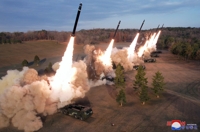 N. Korea says Kim guided simulated nuclear counterattack drills for 1st time
N. Korea says Kim guided simulated nuclear counterattack drills for 1st time -
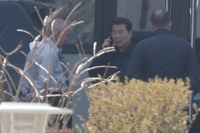 N. Korea calls envisioned U.S. aid to Ukraine 'hallucinogen'
N. Korea calls envisioned U.S. aid to Ukraine 'hallucinogen' -
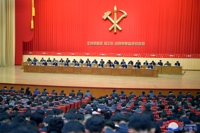 N. Korea calls on party propaganda officials to work harder
N. Korea calls on party propaganda officials to work harder
-
 'Queen of Tears' weaves rich tapestry of Korean contemporary art
'Queen of Tears' weaves rich tapestry of Korean contemporary art -
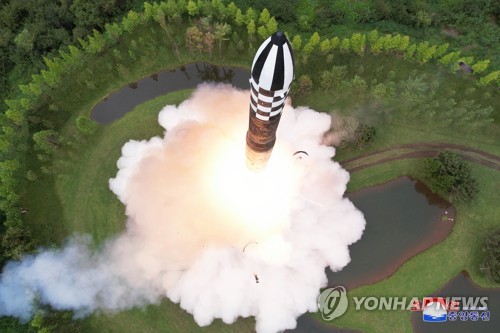 Experts see possibility of N.K. conducting nuclear test before U.S. presidential vote
Experts see possibility of N.K. conducting nuclear test before U.S. presidential vote -
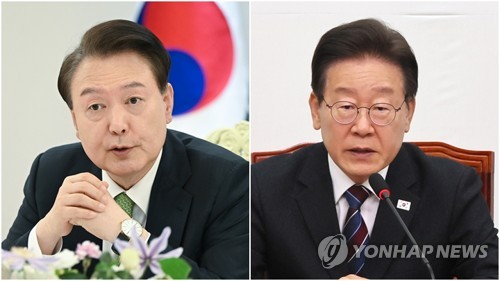 Details of meeting between Yoon, opposition leader undecided: presidential office
Details of meeting between Yoon, opposition leader undecided: presidential office -
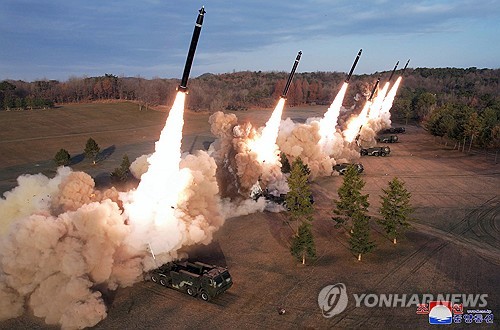 N. Korea says Kim guided simulated nuclear counterattack drills for 1st time
N. Korea says Kim guided simulated nuclear counterattack drills for 1st time -
 Looming weekly closure of major hospitals feared to worsen medical service crisis
Looming weekly closure of major hospitals feared to worsen medical service crisis
-
 S. Korea eliminated in Olympic football qualifiers as poor defense, undisciplined play prove costly
S. Korea eliminated in Olympic football qualifiers as poor defense, undisciplined play prove costly -
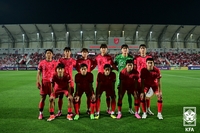 10-man S. Korea lose to Indonesia to miss out on Paris Olympic football qualification
10-man S. Korea lose to Indonesia to miss out on Paris Olympic football qualification -
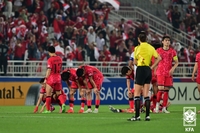 (LEAD) 10-man S. Korea lose to Indonesia to miss out on Paris Olympic football qualification
(LEAD) 10-man S. Korea lose to Indonesia to miss out on Paris Olympic football qualification -
 Indonesia coach left with mixed feelings after eliminating native S. Korea in Olympic football qualifiers
Indonesia coach left with mixed feelings after eliminating native S. Korea in Olympic football qualifiers -
 ADOR CEO calls conflict with Hybe 'worst experience of my life'
ADOR CEO calls conflict with Hybe 'worst experience of my life'















